Graduates of the Department of Art and Fashion Design at the Faculty of Design, KNUTD, took part in academic international online mobility under the Collaborative Online International Learning program “FASHION FOR A GOOD LIFE”, which lasted from September 8 to November 13, 2024.
162 students from various educational institutions around the world participated in the academic mobility program: King AbdulAziz University, Jeddah, Saudi Arabia; Texas State University, United States; University of North Carolina Greensboro, United States and Kyiv National University of Technologies and Design, Kyiv, Ukraine. From the Faculty of Design of KNUTD, 22 students of higher education at the bachelor’s and master’s levels of the “Fashion Design” educational program took part in academic mobility. On November 8, 2024, a final online seminar based on the results of this project was held.
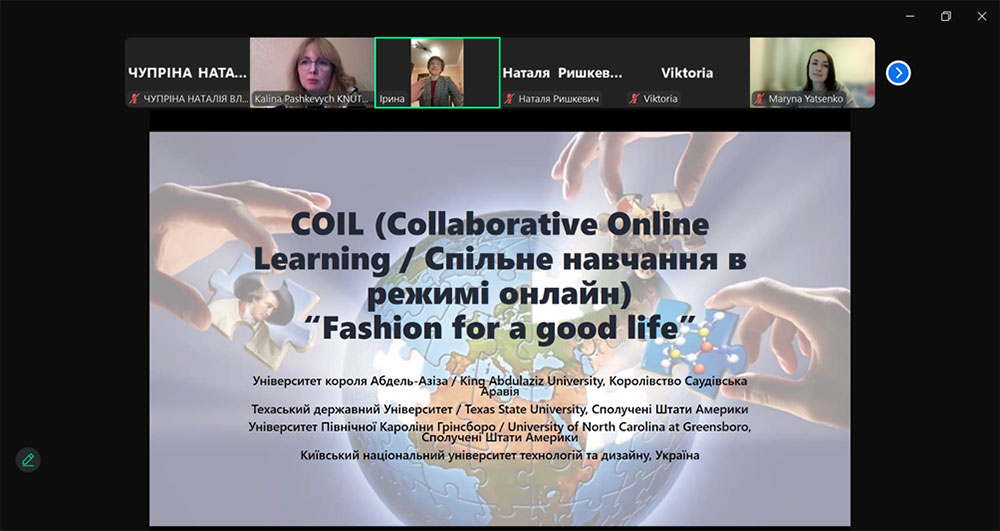
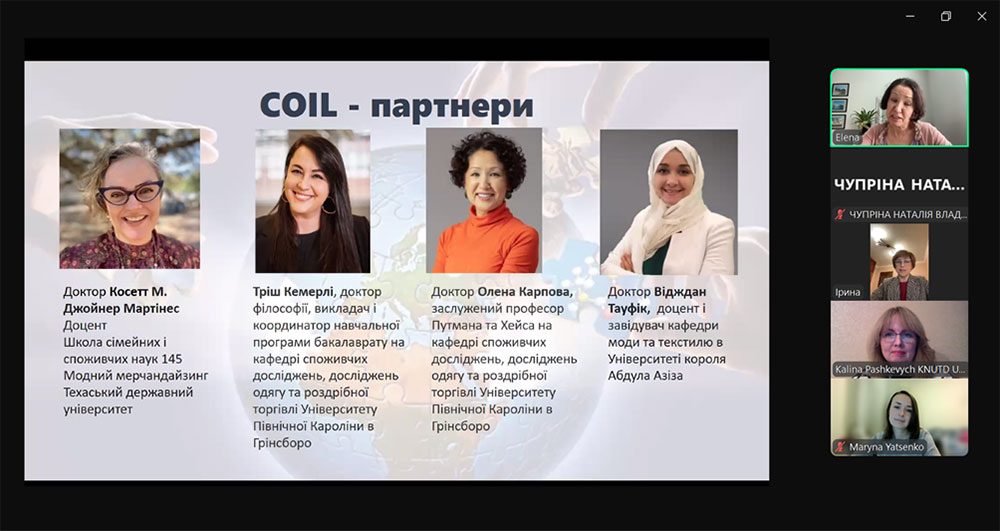
COIL’s online academic mobility program “Fashion for a good life” involved a joint discussion and creation of a project on the topic of sustainable fashion and responsible consumption. The participants of the international project were divided into 17 international teams, which included representatives of various universities. We are proud to note that KNUTD students Yevgenia Tsarii, Andriana Gah, Vladyslav Lukyanets, Oleksandra Khovanova, Oryna Igin were elected leaders in their teams.
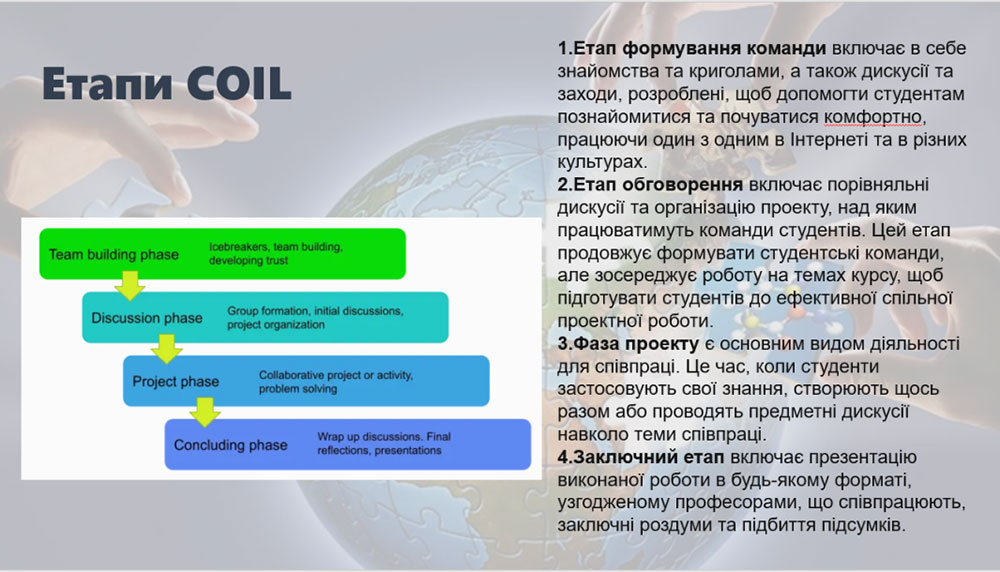
Academic staff from partner universities were involved in teaching modules of the COIL project: Dr. Cosette M. Joyner Martinez, Associate Professor, Texas State University, Dr. Trish Kemerli, University of North Carolina at Greensboro, Dr. Olena Karpova, Professor, University of North Carolina at Greensboro, Dr. Wijdan Taufik, Associate Professor and Head of Department of Fashion and Textiles, King Abdulaziz University Aziza, Dr. Kalyna Pashkevych, Dean of the Faculty of Design, Iryna Davydenko and Maryna Yatsenko, Associate Professors of the Department of Art and Fashion Design, KNUTD. At the weekly meetings of the COIL project instructors, the issues of intercultural communication, integration strategy and interdisciplinary courses, tasks of project implementation stages, and students’ performance of tasks were discussed.

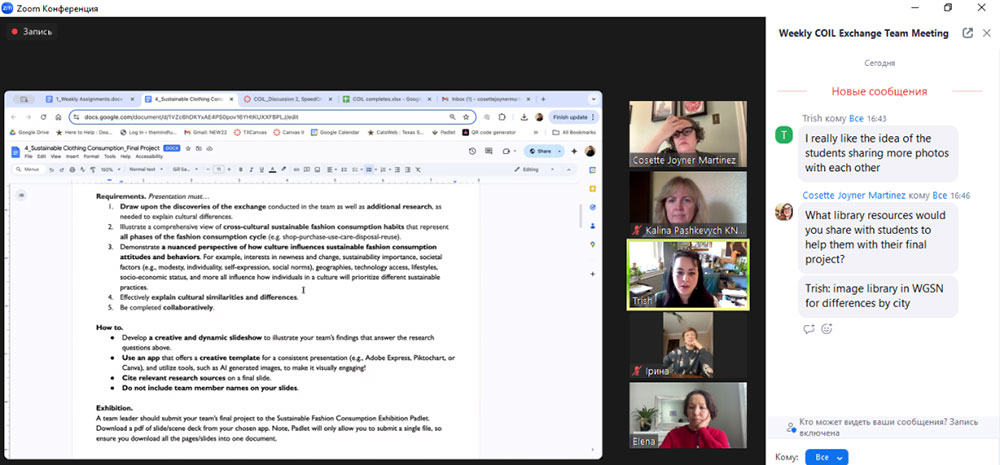
International teams worked online in real time and ‘asynchronously’ due to the difference in time zones to complete the training tasks. One of the main tools of the COIL project was the Padlet online technology, in which students received information, published intermediate and final results of their work.
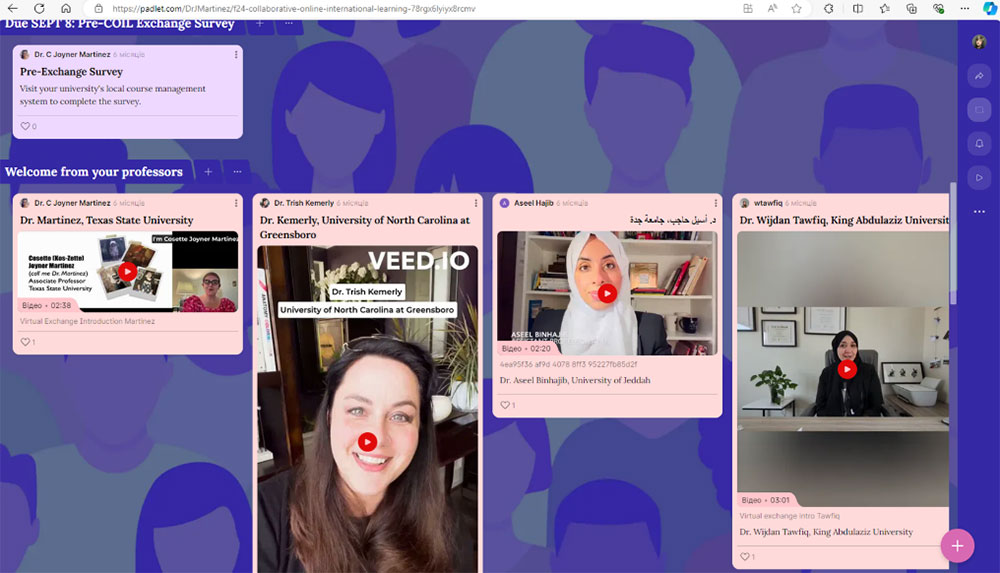
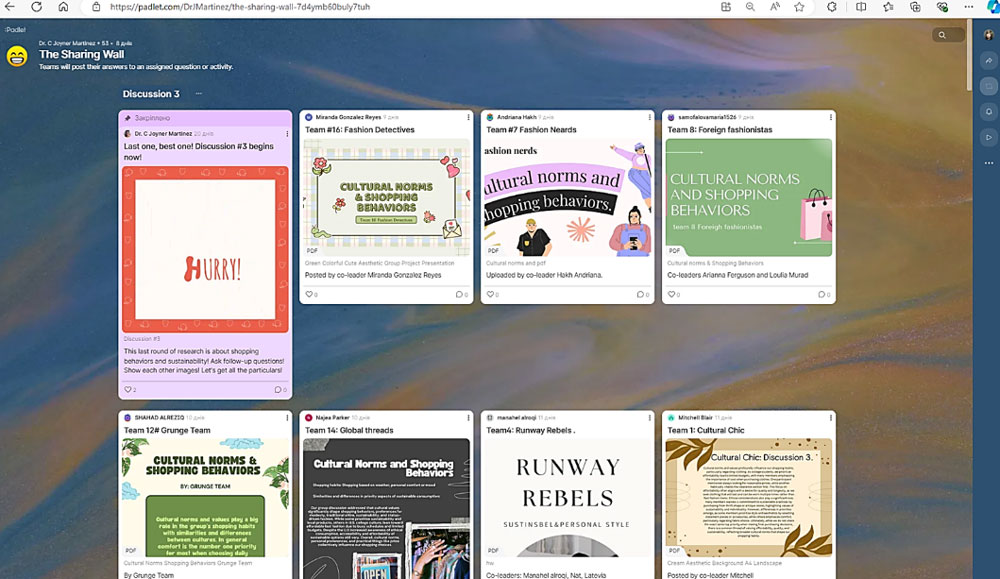
Thanks to effective and harmonious cooperation, students of different cultures gained experience of international teamwork under the guidance of instructors. The result of such interaction was the final projects of the teams.
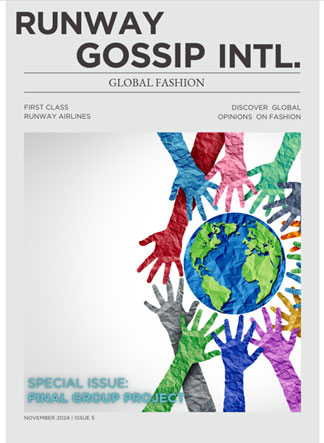
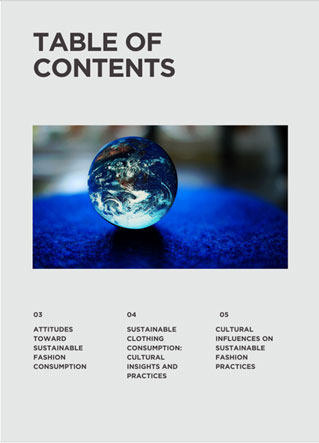
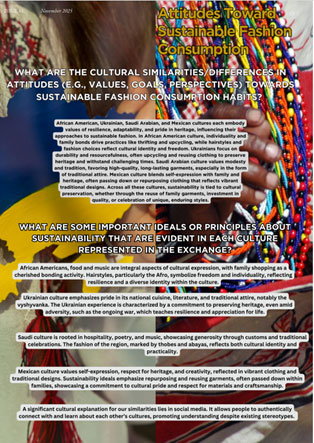
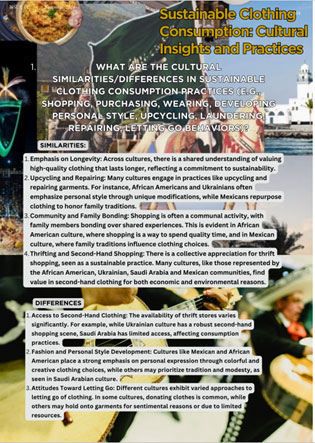

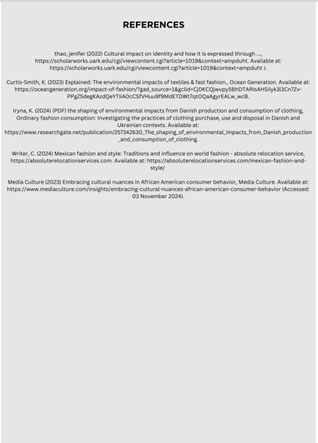
The students who successfully completed training under the COIL “Fashion for a good life” program received certificates and re-enrollment of the obtained program learning results in academic disciplines in accordance with the agreement on participation in the international academic mobility program.
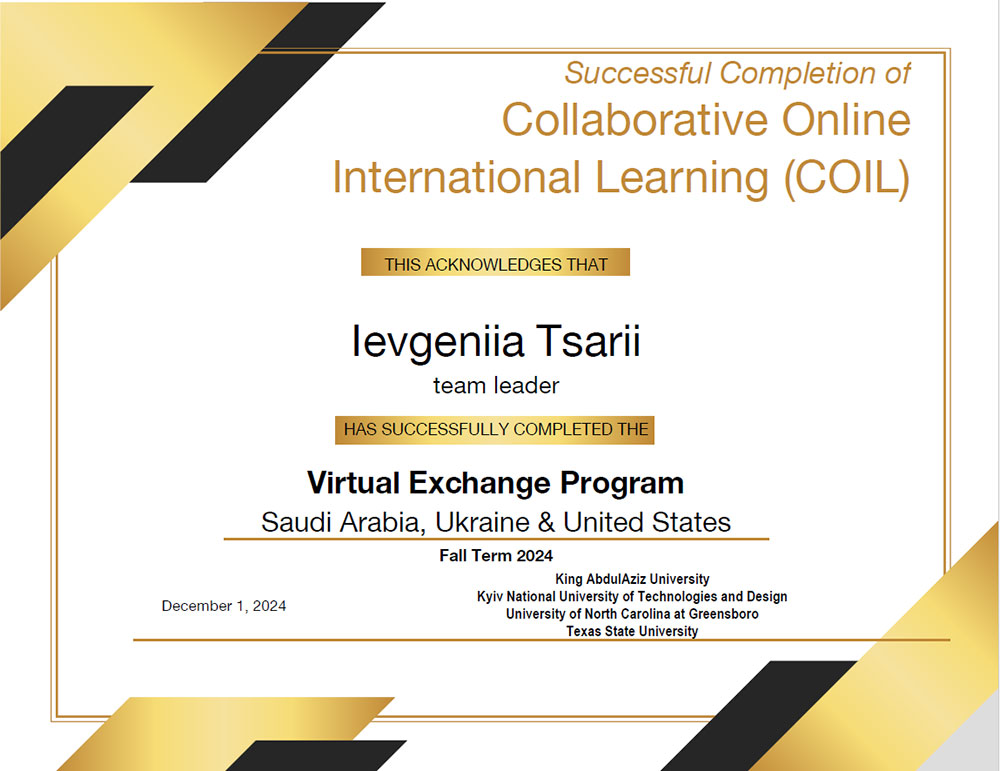
We hope that the next Collaborative Online International Learning (COIL) project will promote global interaction across borders, bringing together students and teachers from different cultures virtually for discussion, learning and creativity.
Many thanks to colleagues from the USA and Saudi Arabia, especially Dr. Cosette Joyner Martinez for organizing the project and its successful implementation!
03.12.2024